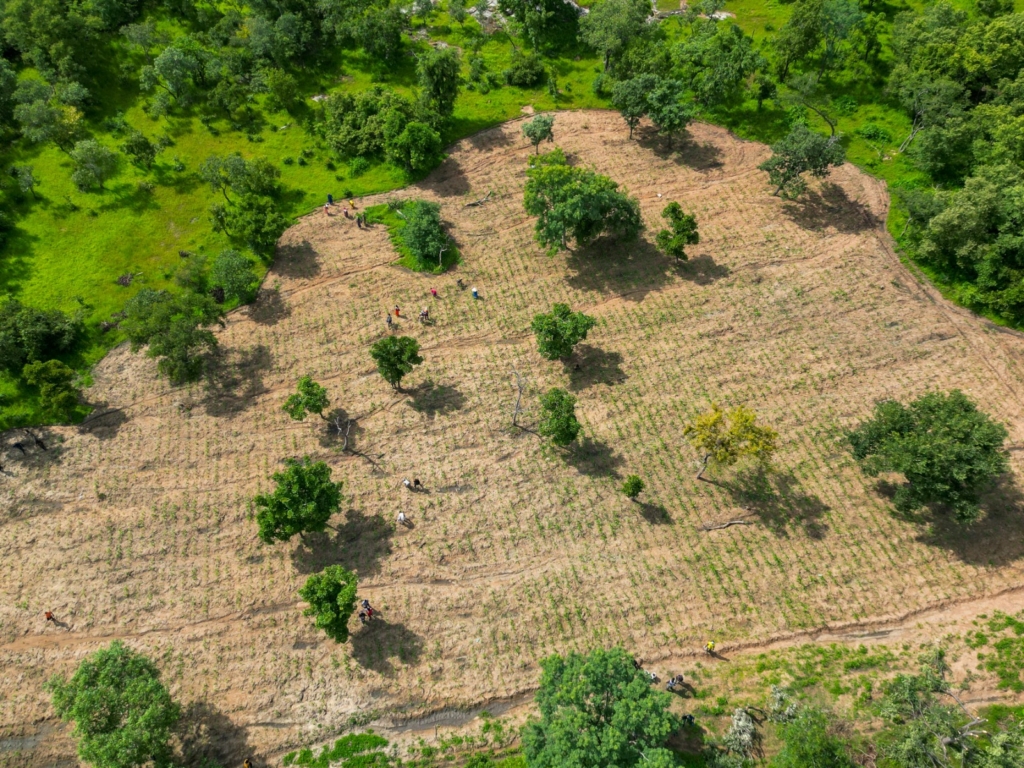Countries have reached an agreement on a plan to raise at least $200 billion each year by 2030 to support biodiversity conservation in developing countries.
This agreement comes despite the recent decision by the United States, the world’s largest biodiversity donor, to halt most of its nature funding due to a freeze on foreign aid under the Trump administration, as it has never been an official participant in these discussions.
The figure also includes a commitment to raise $20 billion annually for conservation financing in developing countries by 2025, with plans to increase this to $30 billion annually by 2030. The initiative aligns with the Global Biodiversity Framework, which aims to protect 30% of the planet and 30% of degraded ecosystems by 2030.
Additionally, countries have agreed to establish the Cali Fund, a new initiative that will create pathways for industries benefiting commercially from biodiversity to contribute to its conservation efforts.
At the resumed COP16 talks in Rome, countries also reached an agreement to establish a “permanent arrangement” for providing biodiversity finance to developing countries to ensure the continued flow of funds beyond 2030. Amid a volatile geopolitical landscape and the aftermath of disarray in previous talks in Colombia, countries successfully forged a consensus on key agreements, marking a significant victory for multilateralism in challenging times.
Countries also reached an agreement on two key texts to monitor their progress in meeting the targets of the Kunming-Montreal Global Biodiversity Framework (GBF), a landmark agreement established in 2022 that aims to halt and reverse biodiversity loss by 2030.
As the COP16 meeting ended Thursday in Rome, participants stood and applauded the results of the discussions. COP16 President Susana Muhamad of Colombia addressed the attendees, saying, “The applause is for all of you. You have done an amazing job.” The applause marked a moment of collective recognition for the successful outcomes achieved during the talks.
She added, “These days of work in Rome have demonstrated the commitment of the parties to advance the implementation of the Global Biodiversity Framework.” Susana said it was the collective effort of all stakeholders that resulted in the key decisions being agreed upon. “Only by working together can we make Peace with Nature a reality,” she said.
Nearly three-quarters of countries have failed to submit their UN biodiversity plans outlining how they will meet the targets of the Kunming-Montreal Global Biodiversity Framework (GBF), despite the deadline passing.
At COP15 in 2022, countries adopted the Kunming-Montreal Global Biodiversity Framework (GBF), a landmark agreement aimed at “halting and reversing” nature loss by 2030, often referred to as the “Paris Agreement for nature.” As part of the framework, countries committed to submitting updated National Biodiversity Strategies and Action Plans (NBSAPs) by COP16 in October 2024. These NBSAPs are critical blueprints for each country’s efforts to address biodiversity loss and will include strategies to meet the targets set by the GBF.
NBSAPs are similar to the nationally determined contributions (NDCs) outlined in the Paris Agreement, as they provide countries with blueprints for meeting global biodiversity goals. However, unlike NDCs, which countries are legally required to submit, NBSAPs are voluntary.
Before COP16 in October 2024, only 25 countries and the European Union have met the deadline to submit updated NBSAPs, including Australia, China, Indonesia, Malaysia, and Mexico. The three countries that control the majority of the Amazon rainforest—Brazil, Peru, and COP16 host nation Colombia—had failed to submit updated nature plans. Additionally, all six countries responsible for managing the Congo Basin, the world’s second-largest rainforest, also missed the deadline for submitting new biodiversity plans.
Countries that failed to meet the deadline for submitting updated NBSAPs ahead of COP16 were asked to submit national targets instead. These submissions outline the biodiversity goals countries aim to achieve, though they lack specific plans on how these targets will be met. As of February 26, a total of 125 parties have submitted their national biodiversity targets.
DISCLAIMER: The Views, Comments, Opinions, Contributions and Statements made by Readers and Contributors on this platform do not necessarily represent the views or policy of Multimedia Group Limited.

